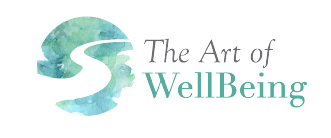WellBeing in Transition
For months now, I have been struggling to accept a particular new reality in my life. Outwardly, the new reality is a small shift in a big picture full of abundance and gratitude. As I sat down to write this blog, however, I realized that this new reality has taken me into transition—wandering, and sometimes wallowing—in what consultant William Bridges calls the neutral zone—a challenging space of not-knowing which can be hard to navigate.
Bridges defines transition as the necessary interior shift between any ending in life and a new beginning. He makes a distinction between “change” and transition. Change is an outward, situational shift. Transition is “the process of letting go of the way things used to be and then taking hold of the way they subsequently become.” Transition is what happens internally when our external reality changes. He outlines three phases:
Ending, losing, letting go
The neutral zone (liminal space, wilderness, uncertainty about the future)
The New Beginning
Transitions can be triggered by personal changes in relationships (birth/health crisis/death, marriage/breakup/divorce, kids growing up). They can be triggered by larger societal forces (pandemic, war, denominational uncertainty). Transition also happens when we change work settings or when any shift occurs within our institution, home, or community which involves the loss of something or someone. Transition can occur when we experience a significant shift in self-awareness or self-understanding. Most leaders are in the midst of one or more transitions much of the time.
Transitions are generally stressful. Even good ones. They can be disorienting—and chaotic. In order to survive them, we often shift into overdrive. We work harder and longer. We may try not to think too much, avoiding the time and energy of dealing with what is emerging. We may not believe we have the time or focus to continue habits and practices which have served us. We rationalize that we will resume our wellbeing rhythms when life settles again. Rather than slow down, reflect, and make intentional choices, we increase our speed, praying that we will get through to the other side when perhaps there will be a return to some kind of normalcy.
Pausing to pay attention to change and loss is a fundamental wellbeing practice. Here are a few more questions for pondering during transition. I am asking them along with you:
What is changing or ending in your life or in your leadership?
What inner growth is required of you in order to navigate this transition well?
What do you need to accept and release (perhaps again and again)?
Think back to earlier transitions and losses. What is your standard response during these times? What perspectives or practices have been helpful to you in the past as you moved through transitions?
What is God’s invitation to you in this season?
Walking with you,
Vicki
Very truly, I tell you, unless a grain of wheat falls into the earth and dies, it remains just a single grain; but if it dies, it bears much fruit. —John 12:24 NRSV
